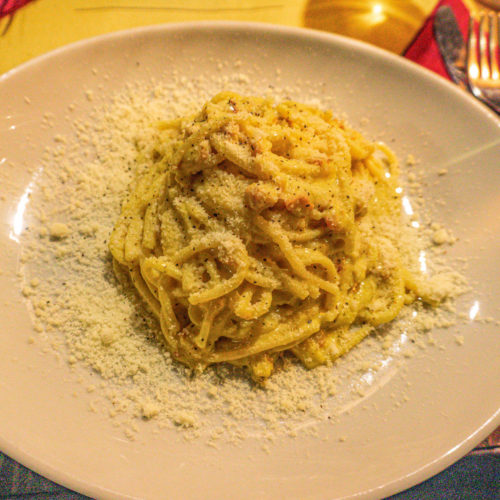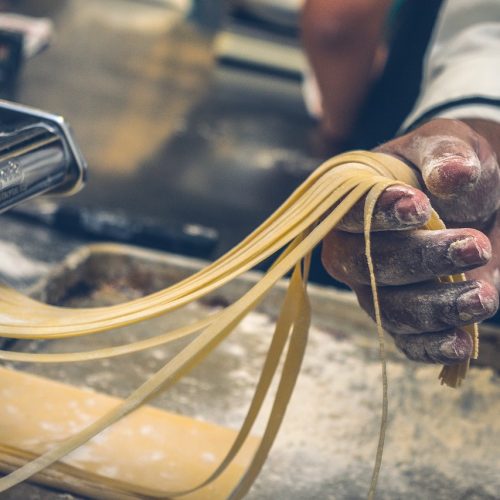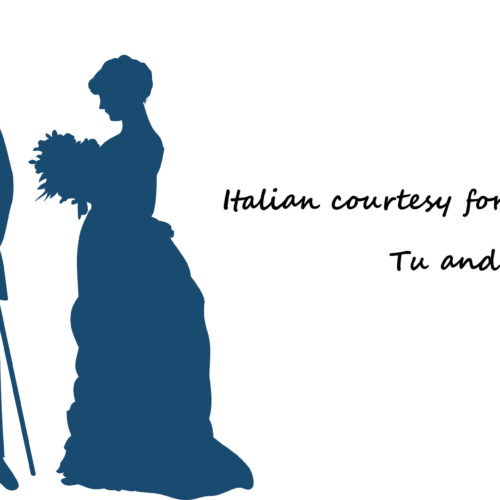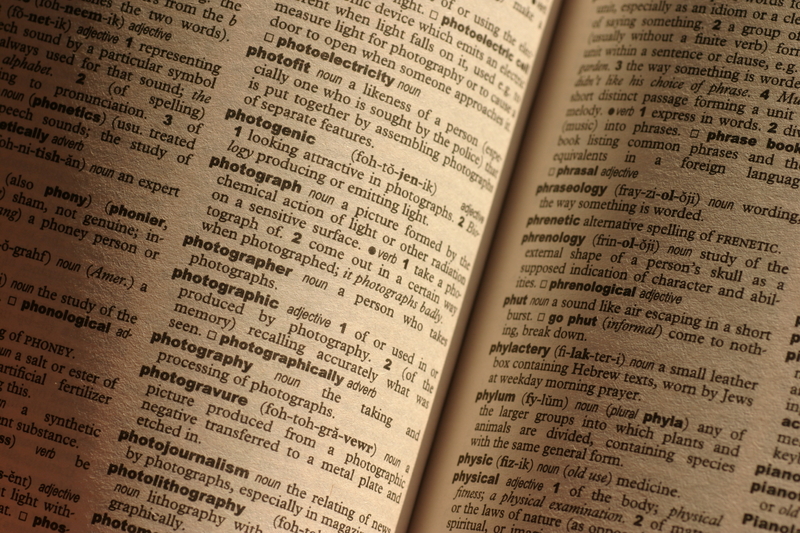Possessive pronouns and adjectives are used in both English and Italian to indicate the ownership of a noun. Possessive pronouns express a relation between a noun and who possesses it, and are used alone, in the place of the noun. The six possessive pronouns in Italian all refer to a person/people. Possessive adjectives in Italian correspond to the English words “my,” “your,” “its,” “his,” “her,” “their” and “our.” Both possessive pronouns and adjectives and generally used in compound forms with the pronoun or adjective coming after a definite article that is not translated in English (ie: “il mio” = “my”). It is important to remember that both possessive pronouns and possessive adjectives must agree in both number and gender to the noun not with the possessor.
THE SIX POSSESSIVE PRONOUNS
Mio = mine
Tuo = yours
Suo = theirs
Nostro = ours
Vostro = yours (polite)
Loro = theirs (plural, third person)
Example: “La scarpa di Vanessa è molto grande, la mia è più piccola.” = “Vanessa’s shoe is very big, mine is smaller.” You will notice that “la mia” replaces “la scarpa,” denoting that the shoe belongs to me.
It is important to remember that in Italian, unlike English, the gender of the possessive pronoun corresponds to the subject/noun not the possessor. For example, when saying “Today is your birthday” you would say “Oggi è il tuo compleanno.” Compleanno is masculine singular so “il tuo” is used regardless of whether the person celebrating the birthday is male or female.
EXAMPLES OF POSSESSIVE ADJECTIVES
My = il mio, la mia, i miei, le mie (masculine singular, feminine singular, masculine plural, feminine plural)
Your (familiar) = il tuo, la tua, i tuoi, le tue
Your (polite) = il suo, la sua, i suoi, le sue
His, Her’s, Its = il suo, la sua, i suoi (masculine plural), le sue (feminine plural)
Our = il nosto, la nostra, i nostri, le nostre
Your (familiar) = il vostro, la vostra, i vostri, le vostre
Your (polite) = il loro, la loro, i loro, le loro
Their = il loro, la loro, i loro, le loro
Example: “I miei cugini” = “My cousins” also “La loro casa” = “Their house.” Note that in the last example we use the third person feminine singular (la loro) based on the fact that the noun (“casa”) is both feminine and singular (ie: we are only speaking of one house). The choice of adjective does not depend on whether the group that owns the house is male or female.
One exception to the rule of using an article before the adjective is when the noun is a specific family relative. For example, if you are trying to say “My sister is blonde” you would say, “Mia sorella è bionda” not “La mia sorella è bionda.”
DIFFERENCES BETWEEN POSSESSIVE PRONOUNS AND ADJECTIVES
Some examples to help clarify the difference between possessive pronouns and possessive adjectives:
La tua casa è sfarzosa, la mia è modesta = Your house is opulent, mine is modest. (pronoun = la mia)
La mia casa è modesta = My house is modest. (adjective = la mia)
Tua sorella è bionda, la mia è mora = Your sister is blonde, mine is a brunette. (pronoun = la mia)
Mia sorella è alta = My sister is tall. (adjective = la mia)
Lei si cuce i suoi vestiti = She sews her own clothes (adjective = i suoi)
Lei vorrebbe una macchina tutta sua = She would like a car all her own (pronoun = sua)
So, adjectives are possessive when they are paired with a noun (ie: la MIA casa; la TUA bicicletta, il MIO gatto, la VOSTRA penna = my house, your bike, my cat, your pen), while pronouns are possessive, even when the noun does not appear, because the pronoun can substitute it (ie: La macchina di Paola è blu, la mia invece è bianca = Paola’s car is blue, mine is white.) Also, in Italian we place ALWAYS the article before the pronoun.
Il gatto del vicino è grasso, il mio invece è magro (My neighbours’ cat is fat, mine is skinny)
Ho ricevuto la tua lettera del 10 maggio (I’ve received your letter dated May 10)
Noi stiamo dalla tua parte (We are on your side)
Questa è proprio una delle tue, Pierino (This is one of yours, Pierino)
EXERCISE
Complete the sentences by inserting the correct pronoun or adjective:
1) Per favore, mi passi il ……. libro?
2) Francesca, il ……. libro di matematica è più completo del ……..
3) La ……. mamma è più severa della ……..
4) Per le esigenze dei figli i genitori trascurano le ……
5) Tu fai tanto volentieri gli interessi altrui, ma non i ……
6) I beni altrui non sono i ……
7) Il nostro compito era facile, il ……. difficile.
8) La …… città natale è più famosa della……
9) Vediamo piuttosto i difetti …… anzichè i nostri
10) La …… vita è piena di fatiche come la ……
Answers:
tuo, mio-tuo, tua-mia, loro, tuoi, nostri, tuo, tua-mia, altrui, tua-mia.
By Elisa Bressan



































